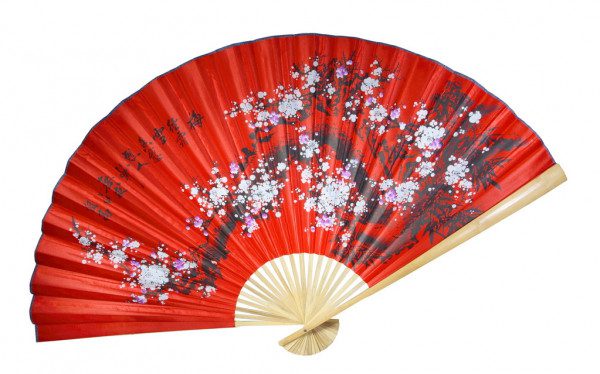Feng Shui Fan Chinese Culture Symbolism

There are several symbols behind them in Chinese culture that have favourable meanings. It can be linked to money, health and many others. The fan of China is the ideal choice with a sign of fame if you are looking to illustrate social standing, authority and popularity. With the replacement of modern electrical equipment, including standing/ceiling fans and air-con, the hand-held fan lost its primary function to reduce heat. This exquisite Feng Shui fan has now become a home decor that gives the environment an oriental look and feel. It also has some favourable symbolization of Feng Shui and bringing charm to the living room.
Here is how you can place Chinese fan for good feng shui:
Always Display Open Fan
It should always be open rather than locked since it symbolises good credibility and good luck. If you hang a closed fan, the loss of wealth, luck and chance is assumed to be blocking.
Hang it in the right direction
The fan must not be hung backwards since this angle is thought to be inappropriate.
Act as a cure for Feng Shui in some circumstances
Showing this Chinese fan will serve as the remedy to build good chi around if your room has dead ends or long narrow passages.
Placement Depends on Artwork
It typically has words drawn on the fan surface in the painting or calligraphy. The art form will specify the location of the fan.
For instance, it’s good to show up in the living room and not the bedroom if it has the famous galloping eight horses. It is better placed in the academic areas if it transmits Chinese poems.
Placing in general
The Fan may generally be mounted as a sign of royalty and authority in the living or study room.
Matter Color
A full black fan as the show should be avoided. It symbolises negative energy, which is not conducive to the home. Red is a great alternative since it is considered to be an excellent colour.
After you have understood the fan symbolism, you intend to incorporate this symbol into your house better.
